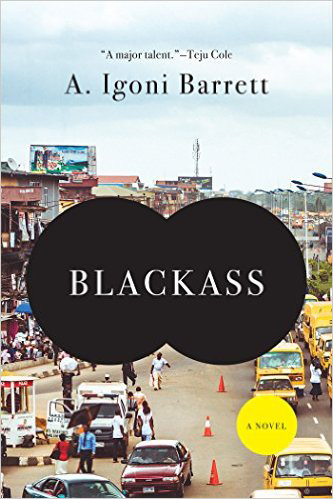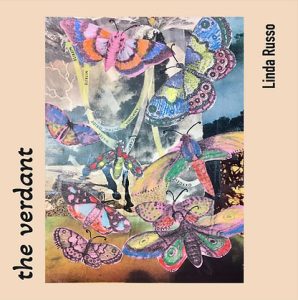Blackass
Furo Wariboko is a Nigerian man living in his parents’ home in Lagos. Like many young Nigerians, he is looking for work. He wakes up one morning to find that overnight, he has transformed into a white man. Barrett’s premise—to explore how Furo’s aesthetic metamorphosis does or does not affect personal change—could produce serious explorations of race’s role in contemporary Nigerian society, as it does. But Barrett’s literary skills are many, and he has produced a first novel that is both contemplative and comic. Furo Wariboko is a Nigerian man living in his parents’ home in Lagos. Like many young Nigerians, he is looking for work. He wakes up one morning to find that overnight, he has transformed into a white man. Barrett’s premise—to explore how Furo’s aesthetic metamorphosis does or does not affect personal change—could produce serious explorations of race’s role in contemporary Nigerian society, as it does. But Barrett’s literary skills are many, and he has produced a first novel that is both contemplative and comic.
The opening pages of Blackass are strange and playful, openly paying tribute to Kafka’s Metamorphosis in both premise and presentation. Barrett plays with readers’ expectations; cockroaches make cameos and Furo, like Gregor Samsa, accepts the surprise change as a matter of fact:
The pallor of his feet was stark against the rug’s crimson. He was white, full oyibo, no doubt about it—and, with his knees swinging, the flesh of his thighs jiggling, his mind following these bone-and-flesh motions for bewildered seconds before moving its attention to other details of his physiology, he began to comprehend the extent of his transformation.
With his outward change obvious and unavoidable, Furo escapes the home of his parents and sets out in search of a job, entering the chaotic streets of Lagos, a city Barrett portrays with as much intimacy and sensitivity as his characters. The city is, in some ways, a character itself. Barrett often takes a few beats to explain the context of particular settings in terms of Lagos’s social structure or history. For readers unfamiliar with Lagos, these will come as helpful, fascinating asides:
Lagos, they say, is a city of twenty million people. Certainly no less than fifteen million. The economic capital of Nigeria and its most cosmopolitan city, Lagos hosts the highest number of foreigners in the country.
As we follow Furo through the city, we learn more about the significance of individual places. A shopping mall is put into context:
As the first Nigerian mall of indubitably international standard, the unveiling of The Palms was a milestone event not only for the Lagos rich, but also for yuppie teenagers, music video directors, and politicians eager to showcase the investment paradise that was newly democratic Nigeria.
It’s a novel with a young, ambitious, unemployed narrator closely connected to the moods and whims of the city in which he lives. It may not be the sexiest writing in the world, this constant contextualizing, but it’s important place writing and Barrett does it well.
My exposure to African literature in Scappoose, Oregon, my hometown, exemplified that of many Americans coming of age in small towns in the first decade of the twenty-first century; we read Conrad’s Heart of Darkness and Achebe’s Things Fall Apart back to back. That is, we read one book written by an African, and then took it as exemplary of the continent’s literary offerings. In defense of my teachers, all of them talented and many of them passionate, getting us to read anything was difficult. Barrett knows that the specter of Things Fall Apart looms heavy over most American readings of Nigerian fiction. On Furo’s first day as a white man in Lagos, he has a job interview with a publishing company. He is asked, “When was the last time you read a book?” He is not a regular reader but uses Things Fall Apart as a cover:
But in fact he chose that book because he was forced to read it in junior secondary and still remembered the storyline. [ . . . ] And in his head the voice of Mr Zikiye, his English Literature teacher, still droned: The white man in this book is a symbol of progress. Okonkwo fought against the white man and lost. Progress always wins, that’s why it’s progress.
Furo discovers that being a white man, what he was told represented progress in that most Nigerian of novels, does have certain advantages. He gets a job without so much as an interview. It has grave disadvantages as well. He cuts off contact with his family. Furo speaks like a Nigerian and clings to his cultural identity, even as he embraces the advantages of his new appearance and social status. About halfway through the novel Barrett shows his cards, laying out in plain language what has been the central human predicament explored in the book:
That he didn’t have a hand in what he was didn’t mean he wasn’t culpable. No one asks to be born, to be black or white or any colour in between, and yet the identity a person is born into becomes the hardest to explain to the world.
Not all of Blackass explores this blunt, albeit essential, thesis, but it also never quite achieves a heightened level of subtly. It doesn’t even try for it. Furo meets a character named Igoni Barrett, who is a writer interested in Furo’s story. Barrett (the fictional character) will undergo his own personal transformation, a change that expands the book’s exploration of racial identity to that of personal identity in a broader sense. The fictional Barrett frequently offers fun little meta-fictional quips like, “Blast the novel. No story is worth the human suffering that vivifies it.”





